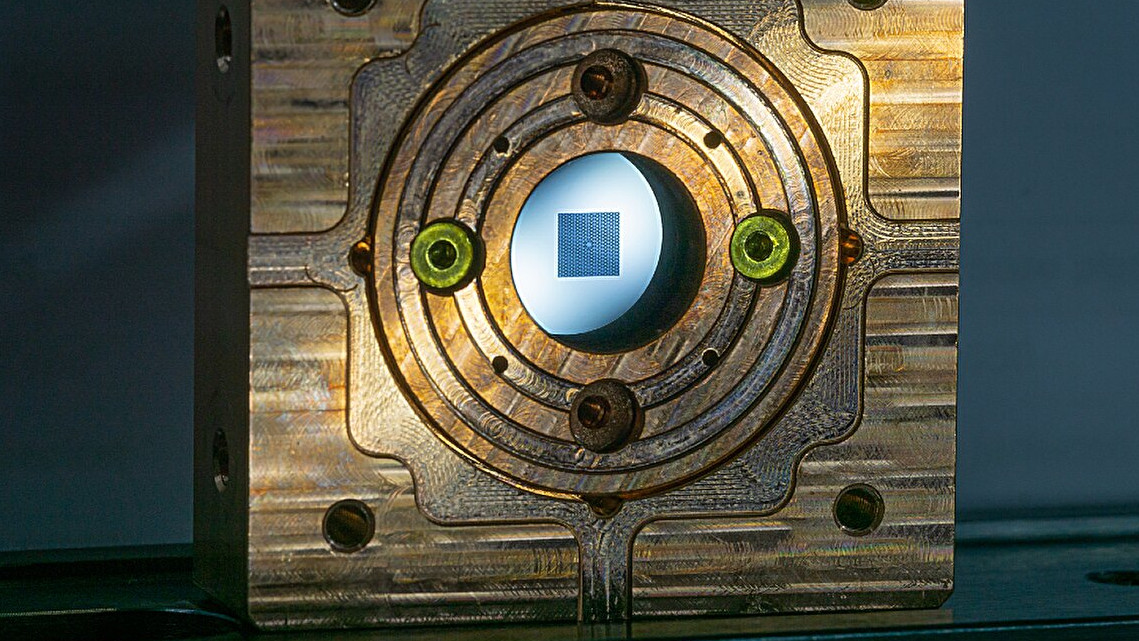Mysterious quantum computing restrictions spread across multiple nations — UK cites national security risks and refuses to elaborate
France, Spain, the UK, and more have no public explanation for the move

Quantum computers are apparently a "national security risk" for some countries, which have mysteriously issued identical restrictions on exports of quantum computing systems. France, Spain, the United Kingdom, the Netherlands, and Canada have all restricted the sale of quantum computers containing more than 34 qubits and above a certain error threshold.
The quantum computing export bans across all these countries have matching specific qualifications for what makes a quantum computer "dangerous enough" to deserve a ban. New Scientist, which first broke the news, contacted dozens of countries asking about the bans and was rebuffed, with the UK claiming that explaining the rationale behind the numbers would be a national security risk.
The countries who have issued the mysterious identical bans are all participants in the Wassenaar Agreement, an export control regime that facilitates a way for its 42 member nations to set limits on dual-use technologies or tech that can be used for both civilian and military applications. New Scientist also wrote to many other Wassenaar states who haven't yet set the matching bans about the source of the 34 qubit number or the potential for other nations to join in the bans.
Milan Godin, a Belgian advisor to the EU, responded, "We are obviously closely following Wassenaar discussions on the exact technical control parameters relating to quantum," pointing to some level of international cooperation on the research behind the quantum restrictions. Experts in the quantum computing field have no clue where the numbers may have come from, with Christopher Monroe of IonQ saying, "I have no idea who determined the logic behind these numbers."
Quantum computers work fundamentally differently from standard computers. A qubit is analogous to a bit (or more accurately a transistor) in a computer, with higher qubit counts meaning higher power. While classical computers work with deterministic outcomes and dead-set calculations, quantum computers handle multiple variable problems at insane complexities that would stall the most powerful supercomputers of today. Our quantum computing explainer, linked at the top of this paragraph, goes in-depth into how quantum works and what it can do.
There is an immense amount of excitement but also fear for the tech, with governments concerned about the potential for military applications, like use for designing new nuclear or biological weapons, but quantum computers will eventually be able to crack the best cryptographic encryption in minutes. The only problem is that quantum computers today are not that good. Quantum computers have high error rates and require cooling solutions that take the qubits down to temperatures of -269° Celsius to function efficiently, so economics dictate that, barring a massive breakthrough in the tech, quantum will not pose any serious risk to anyone for years to come.
Other Wassenaar Agreement nations are likely to come out with similar trade restrictions on quantum computers in the coming days. However, the "national security risk" behind the bans is likely nothing to worry about based on the low capabilities of quantum systems. What is likely to happen in the short term is more national isolation of quantum computing research, as U.S.-based companies will no longer be able to expand to the UK or vice versa.
Get Tom's Hardware's best news and in-depth reviews, straight to your inbox.

Sunny Grimm is a contributing writer for Tom's Hardware. He has been building and breaking computers since 2017, serving as the resident youngster at Tom's. From APUs to RGB, Sunny has a handle on all the latest tech news.
-
bourgeoisdude Almost certainly has to do with breaking modern AES encryption. Many firewall vendors are already supporting post-quantum encryption for VPN tunnels to lessen the risk of harvest now decrypt later attacks.Reply